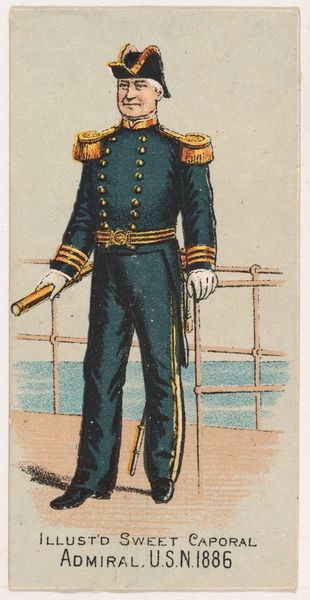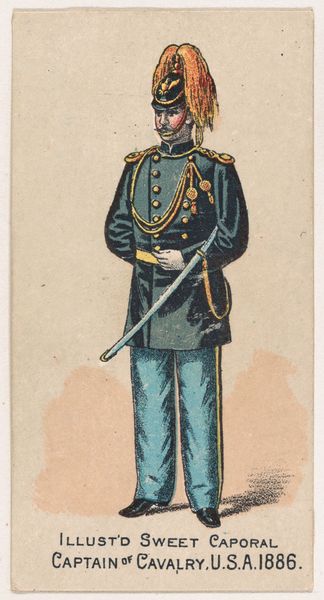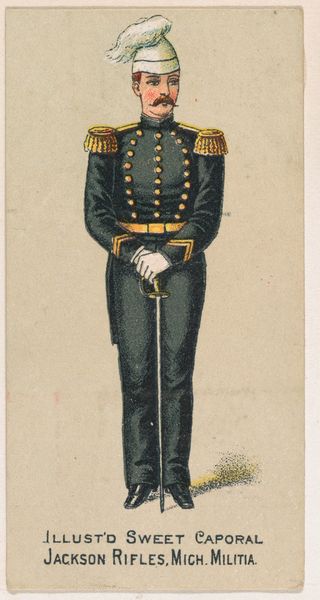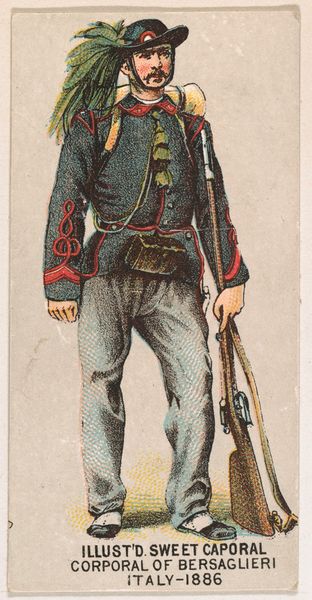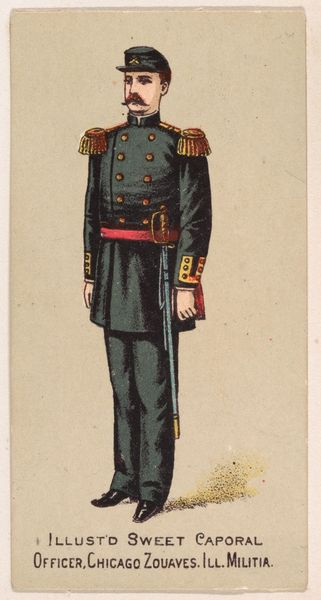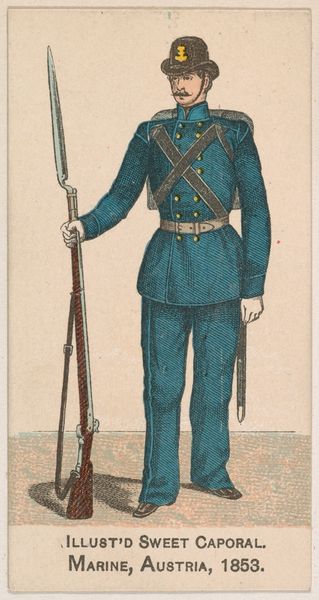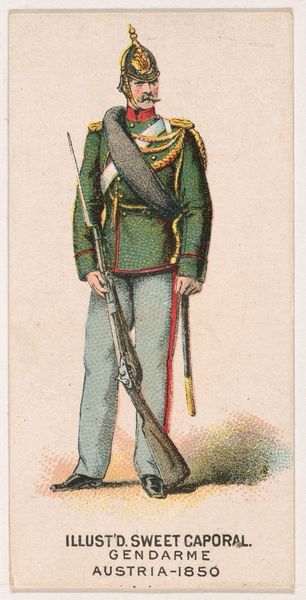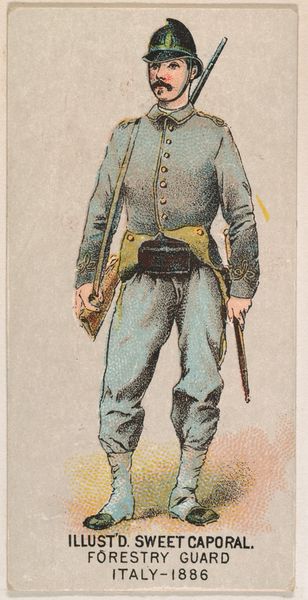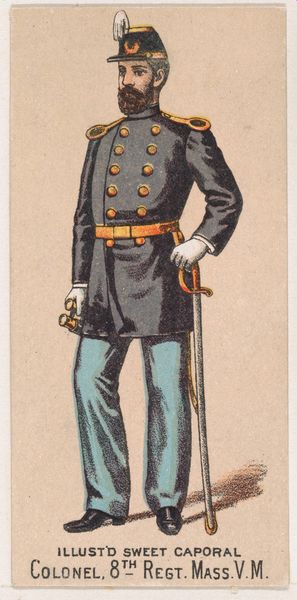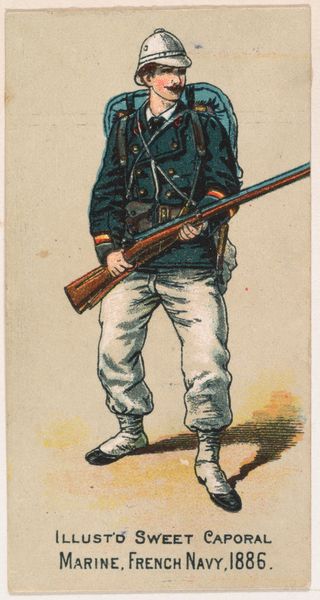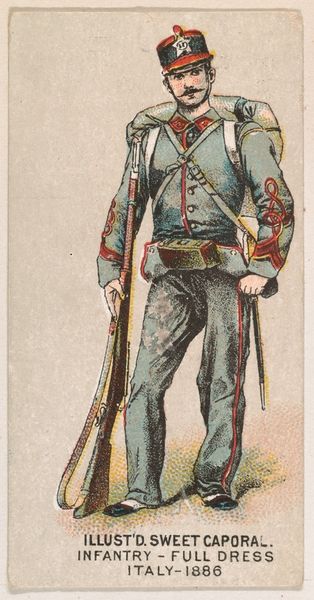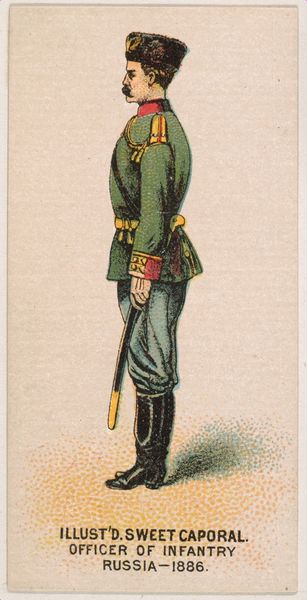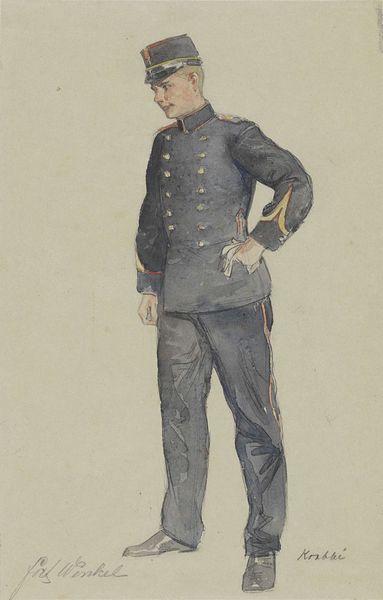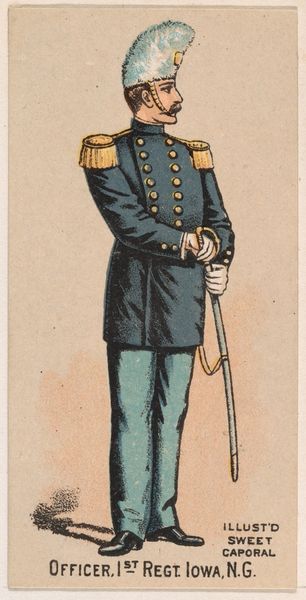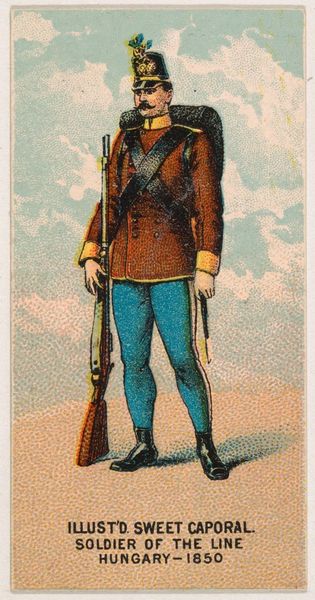
Dogali, from the Famous Ships series (N50) for Virginia Brights Cigarettes 1895
0:00
0:00
drawing, print, paper, photography
#
drawing
# print
#
paper
#
photography
#
orientalism
Dimensions: Sheet: 1 1/2 x 2 5/8 in. (3.8 x 6.7 cm)
Copyright: Public Domain
Curator: This photograph from 1895 is entitled "Dogali," taken from the Famous Ships series of trade cards by Allen & Ginter. It’s rendered in a sepia tone that imbues it with a palpable sense of history. Editor: It projects an imposing visual presence, doesn't it? Almost melancholy. The ship looms in the foreground as if guarding the waters. Curator: I agree, and it is interesting that such a seemingly neutral portrait of a naval vessel could speak to something darker. Formally, one might note how the composition centers the ship within its frame, its formidable chimneys disrupting what would otherwise be a smooth, uninterrupted horizon line. The dark mass of the vessel provides a striking contrast to the faintly blurred backdrop. Editor: While it is aesthetically notable, "Dogali" cannot be divorced from the colonial narrative and the implications of imperial expansion during the late 19th century. Italy acquired the Dogali after it had been seized from Abyssinia following a colonial invasion that the Italians were forced to withdraw from. To display it is a deliberate act of projecting power. Curator: So you’re suggesting the photograph not only shows us the material presence of a warship, but also participates in a much wider circulation of cultural and political power? That by documenting and disseminating the image of this Italian warship—even on a small card intended for commercial use—it underscores Italy's militaristic strength and reach during the peak of European colonial ambitions. Editor: Precisely! It becomes a tool—part of a symbolic infrastructure that bolsters national identity and imperialistic ideology. Consider how cigarette cards were designed for widespread consumption, embedding these messages within the daily routines of the population. It subtly works to normalize Italy’s colonial project and instill a sense of patriotic pride tied to expansionism. Curator: You’ve really offered me a much more critical way of looking at a fairly straightforward, even subdued, image of military technology. I find myself rethinking how seemingly benign forms, like a simple photographic print, can encode complex systems of social and political meaning. Editor: Right! The real value here, as elsewhere, resides in acknowledging and understanding the layers of ideological sediment contained within it, making "Dogali" less an image of a ship, and more a symbol of a fraught colonial encounter.
Comments
No comments
Be the first to comment and join the conversation on the ultimate creative platform.
